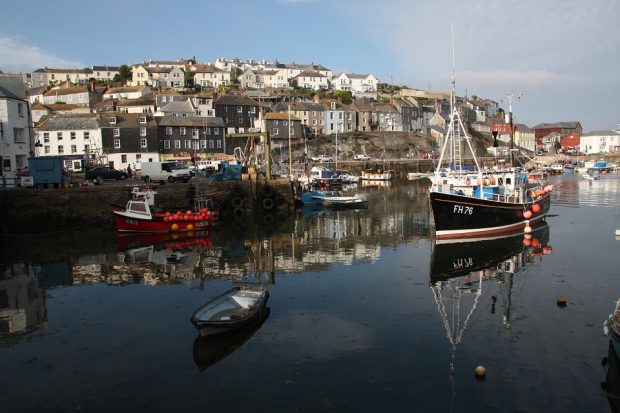
On Tuesday (24 November), the UK government announced that the flagship Fisheries Bill is now enshrined into UK law. The UK’s first major domestic fisheries legislation in nearly 40 years received coverage across online, trade and broadcast media. The major announcement was reported on by titles including Seafood Source, Undercurrent News, Fishery Nation, World Fishing & Aquaculture, Shetland News and Merco Press.
Defra Secretary of State George Eustice discussed this milestone moment on BBC Radio Guernsey, BBC Look East, BBC Radio Cornwall and ITV West Country.
Shadow Secretary Luke Pollard raised concerns over the Fisheries Act, specifically in relation to sustainability and the protection of fish stocks, on Farming Today. However, the passing of this act only strengthens the UK Government’s commitment to sustainable fishing now that it has been placed into law. The prioritisation of this commitment is made evident by the decision to place environmental sustainability at the centre of 6 out of the total 8 objectives of the Act.
The Fisheries Act also provides the UK with the powers to restrict the activities of vessels, including supertrawlers, within our waters. Any decision will be considered carefully and based on evidence.
The Fisheries Act 2020 gives the UK full control of its fishing waters for the first time since 1973, allowing the UK to decide who fishes in our waters and set annual Total Allowable Catches (TACs) based on scientific advice while considering the needs of our fishermen.
Underpinning the Fisheries Act is a commitment to sustainable fishing. With the introduction of this landmark legislation, the UK Government and Devolved Administrations can now develop new fisheries management plans for managing fisheries to benefit the fishing industry and the marine environment. This includes legally binding plans relating to fish stocks.
Without the constraints of the Common Fisheries Policy (CFP), Administrations will be able to tailor the specific needs of their industries and waters. With these new powers, the UK can take action to minimise the fishing sector’s impact on climate change, for example by developing policies to reduce emissions for instance from fishing vessels or encourage decarbonisation.
Environment Secretary George Eustice said:
This is a huge moment for the UK fishing industry. This is the first domestic fisheries legislation in nearly 40 years, and we will now take back control of our waters out to 200 nautical miles or the median line.
The Fisheries Act makes clear our intention to continue to operate on the world stage as a leading, responsible, independent coastal State. We will protect our precious marine environment, whilst ensuring a fairer share of fishing opportunities for UK fishermen.
By swiftly responding to the latest scientific advice and needs of our fishing industries we will secure a thriving future for our coastal communities.
Fisheries Minister Victoria Prentis said:
The Fisheries Act marks another crucial milestone as we embark on a new journey as an independent coastal State.
This means that we can tailor our policies to the needs of the UK industry - making the most of the riches of our waters, in harmony with the needs of the marine environment.
As we move forward as an independent coastal State, the UK can shape its own approach to marine management to achieve our shared goal of a healthy, sustainable and economically viable marine environment for future generations to enjoy.
2 comments
Comment by William Hughes-Games posted on
The new fisheries regulations are indeed good news but I was somewhat disappointed by the comment that it will ensure a fairer portion of the fish in UK waters for UK fishermen. You will never have control of your fisheries resources if you allow foreign fishermen into UK waters. And remember, the Grand Banks were regulated by one of the most able fisheries ministries of all time and they led to the crash in the fish of the Grand Banks. Worthwhile to go deeply into why this was and avoid it happening on the Dogger Banks.
https://mtkass.blogspot.com/2010/12/fisheries-policy-lets-change-tacks.html
Comment by Edward Soudan posted on
Presumably, IF Scotland gains independence and joins the EU, all its waters would be reclaimed by the European Union. I Suggest Scottish fishermen reflect on that IF that happens.